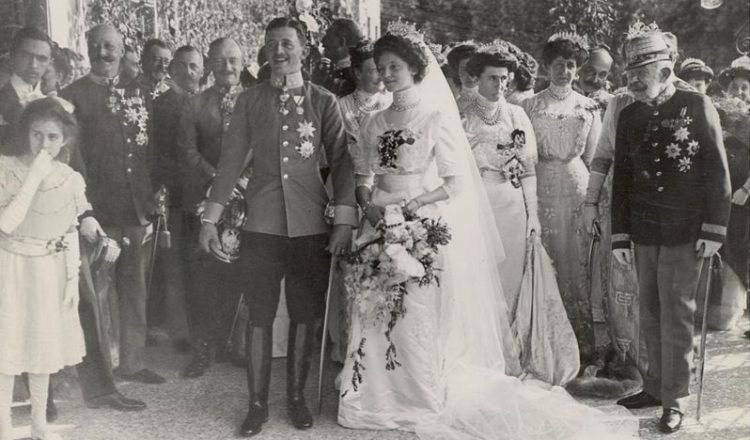
He will be a target of attacks from the Hell

Archduke Charles of Austria was born August 17, 1887 in the Castle of Persenbeug in the region of Lower-Austria. He was the son of Archduke Otto Franz of Austria, -nephew of Emperor Francis Joseph I-, and Princess Maria Josephine of Saxony, daughter of the last King of Saxony. He received a profound Catholic education from his mother. As from his early childhood he had developed a deep sensitivity towards human suffering.
Charles was 8 years old when Mother Maria Vinzentia Faunland, the stigmatized sister of the Ursuline convent in Sopron (Hungary) prophesied that he would undergo great sufferings. She asked “to wrap the young Archduke in prayers since someday he will become Emperor-King, will have to suffer greatly and will be a special target of Hell.” Upon Charles’ death that prayer group formed the “The Emperor Karl (Charles) League of Prayer” for the peace of the peoples”.
Archduke Charles and Princess Zita of Bourbon-Parma were married for true romance. Charles proposed to Zita in Mariazell, Austria and they entrusted themselves to the Mother of God, having inscribed a prayer on their wedding rings: “We fly to take refuge under your protection, O Holy Mother of God.” Charles worded their future life together at their engagement as follows: „Now, we must help each other to get to Heaven!” They married on October 21, 1911, and were blessed with eight children. On his deathbed the King told his wife: “I’ll love you endlessly.”
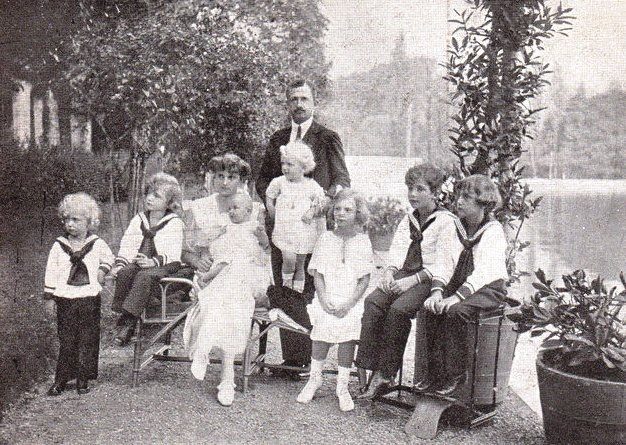
Contrary to the Habsburg family’s tradition, both Charles and Zita actively participated in raising their children, in addition they provided them high quality education in a loving family environment. One of the King’s last will was to have his children educated by five Hungarian Benedictine monks.
Charles became heir to the throne of the Austro-Hungarian Empire on June 28, 1914 following the assassination of Archduke Francis Ferdinand. Two years later, upon the death of Emperor Francis Joseph, he took over the imperial throne on November 21, 1916 as Charles I of Austria.
On December 30, 1916 he was crowned Apostolic King of Hungary in the Matthias Church in Budapest under the name of King Charles IV of Hungary. He sincerely loved and honoured the Hungarians, moreover he spoke Hungarian just as perfect as he spoke German. As he said once: “Whenever Hungarians are talking about their homeland, so much loyalty flows from their eyes.”
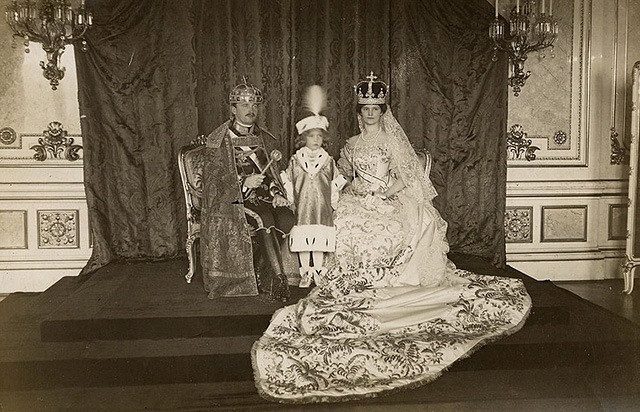
It was the 3 rd year of World War I when Charles had become Emperor and King at the age of 29. He was young, lacking sufficient experience to handle a monarchy. A challenging circumstance to start his Way of the Cross that turned out to be a reign unsuccessful in terms of temporal matters, but full of goodwill. As an emperor he took his imperial ruling duty as a sacrificed mandate to follow Christ: he dedicated his life’s every decision and action for the love and care of the people entrusted to him. He understood peace to be the most sacred duty of a king, so as from the very first moment of his reign he struggled to lead his nations out of the pointless war. He was the only one amongst the European political leaders supporting Pope Benedict XV’s peace proposal. His beloved wife, Zita was the greatest support in his efforts for a fair and lasting peace.
Already at the time of ascending the throne, it was the creation of peace that he defined as his main duty in his proclamation: “Within my power I want to do all to banish the horrors and sacrifices of war at the earliest possible date and to win back the sorely missed blessings of peace for my people…”- as had been declared in his proclamation.
“King Charles was the only decent man to have appeared in this war, and he was not listened
to. […]He truly wanted to create peace, therefore was despised by the entire world.” (Anatole France)
“Rather everything, but never an injustice. This is the Christian conscience on the throne. King Charles thought of the war with horror, and was passionately working on to restore the peace. His efforts originated not only from pure political reasons, but rather from the wonderful philanthropy, the source of which was his love for God.” (Albert Apponyi)
“All his power and strength was turned to seeking for peace, even at the cost of attacks made on him and of being misunderstood. Therefore, even in our times, he shows us an example as timely as ever, and we can call upon him as an intercessor to obtain peace for humanity.” (Pope Benedict XVI)
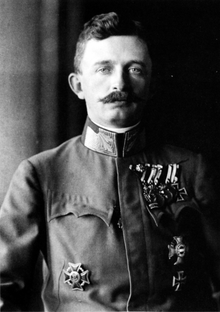
Charles intended to shape a more democratic and a socially fairer empire, where people’s love and satisfaction would provide the real support to the throne. Despite the extremely difficult times he initiated wide and exemplary social legislation. On the eve of his coronation in Hungary, the 19-course coronation-feast had been forwarded to military hospitals around Budapest, while the fifty-fifty thousand golden crowns, offered to him and his wife by the Hungarian National Assembly, had been donated for social purposes and for helping war widows and orphans. His extraordinary social sensitivity is clearly illustrated by the establishment of a Ministry of Social Welfare, the first of its sort in the world, at first in Austria, later on in 1917 in Hungary. His imperial power was exercised purely on the ground of the Church’s teachings on social justice.
Throughout his life he demonstrated a unique sense of duty and awareness. Self-control was of high importance in his life, as he said: “this is the most difficult reign.” From his childhood he had been deeply devoted to adoring the Holy Sacrament, so wherever he lived a private chapel had been set up where the Eucharist was exposed, and where he often prayed at nights in the silent solitude at the light of the eternal candle.
“There was one single issue to complain about him as an Emperor: his overgrown, general human goodness, which has never been a sort of all-forgiving goodness, rather a demanding, confidential one.”(As recalls an associate to King Charles)
At the end of the war, thanks to King Charles’ attitude and conduct, the transition to a new order was effected without bloodshed and civil war. He was, however, banished from his country.
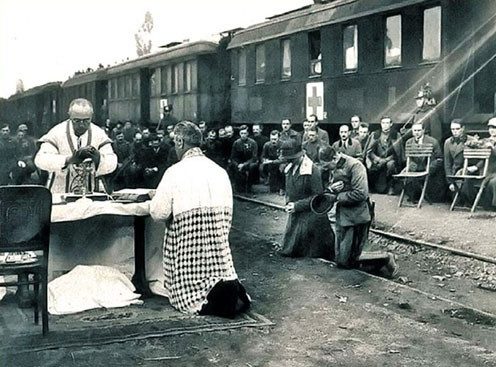
Considering his duty as a mandate from God and having been encouraged by Pope Benedict XV he attempted twice to return to Hungary as Apostolic King. Pope XV asked him to protect the Church in Hungary, since Europe was in danger from the east, which could have easily forced the Church into catacombs again, while drifting people into a dictatorship.
“Should I ever return to Hungary, I will certainly never do so out of a desire to rule. I had always been wearing a crown of thorns, and this thorn crown was the only thing that Hungary could return to me. For me, my coronation oath had always meant that king and nation should come together both in flourishing and deterioration.”
Upon his second return, at the end of October 1921, in order to prevent bloodshed, he gave up the fight for good. Charles and Zita were taken to the Benedictine monastery of Tihany, Lake Balaton, where they spent their last days in Hungary.
“For the last time I entered his room I was full of worries [in Tihany]. I thought he had broken under the pressures of the cruel fate and I would find a writhing king, whose consolation is hard to find words to, all the more to find sound reasoning. […] The thunderstorm had left his marks on the King. His hair turned white. His face had become deeply lined by the concerns. An appearance solemnly serious, alike to the self-conscious endurance. He was perfectly aware of his situation. He was not expecting neither explanation nor consolation. […] Still, he kept on having profound trust and faith: ‘No matter how much I have to suffer, our Lord Christ has suffered even more.’ Such a soul does not need consolation at all. It would be absolutely redundant. With his amazing power he just forces our admiration. His last words were beautifully lived up to his devoted life: ‘I devote my life as a sacrifice for my people.’ (From Cardinal, Primate János Csernoch’s memoirs)
“I’m so much desperate about what happened. Hungary will be hardly punished for attacking his anointed Apostolic King, who is not only a crowned king, but a true saint. (László Batthyány-Strattmann, right after the King’s second failed attempt to return to Hungary)
It was at Baja, where the imperial couple left the territory of Hungary forever. Here they boarded the Danube cruise of the Entente, which finally took them to the island of Madeira, the place he was banished into exile. On this Atlantic island the royal family lived in a damp house, in definitely impoverished conditions. Nevertheless, Charles had never lost his faith and serenity. His life turned into constant and continuous prayers.
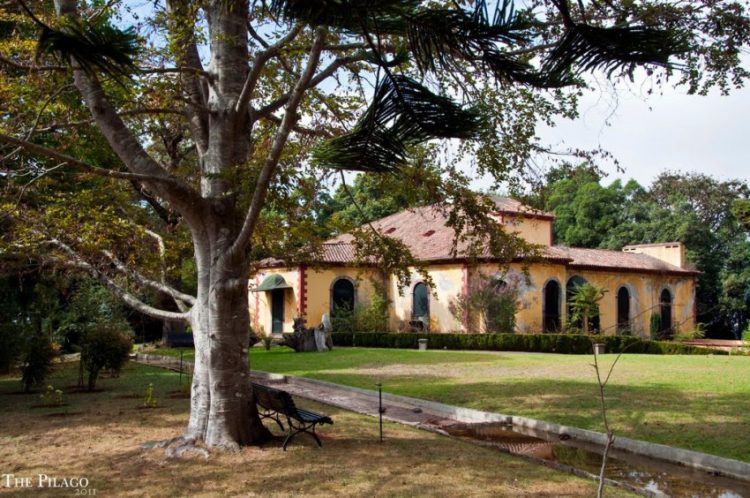
Due to the harsh life conditions the King’s health quickly deteriorated and in March 1922 he fell fatally ill. He endured his pain and suffering without complaining, and offered it as a sacrifice for his nations. On his deathbed he forgave everyone and all those who conspired against him and betrayed him. On the last day of his life he worded the motto of his life: “I strive always in all things to understand as clearly as possible and follow the will of God, and all this in the most perfect way.”
Charles died on April 1, 1922 at the age of 35. At his funeral ceremony Bishop Antonio Manuel Pereira Ribeiro spoke: “Madeira had to wait for his own saint until today, and now he has been found. Today a martyr has been returned to the motherland.” Charles tomb has immediately turned into a place of pilgrimage, people of Madeira honoured him as a saint hermit, a family man and a penitent Emperor.
As from the day of Charles’ death, his wife Zita dressed in black only. She raised their 8 children for faith and humanity. She died at the age of 97, on March 14, 1989 but could return to her homeland after her death only. She rests at the burial site of the Habsburgs, in the imperial crypt of the Capuchin Church in Vienna.
On April 1, 1972, on the 50 th anniversary of King Charles IV’s birth to Heaven, in Madeira in the presence of the Church’s competent committee and the representatives of the family his tomb was opened; his body was discovered to be incorrupt.
On April 12, 2003 in the presence of Pope John Paul II, Charles I of Austria’s Heroic Virtues had been proclaimed, thereby acquiring the title of Venerable. In the very same year, on December 20, a Papal Decree promulgated a miracle, attributed to King Charles I, namely a miraculous heal in Brazil in 1960.
The last Apostolic King of Hungary was beatified on October 3, 2004 by Pope Saint John Paul II, at the same time designating 21 October as the liturgical Feast Day of Blessed Charles. Thus the Church celebrates the Blessed King’s Feast Day not on the day of his death, but rather on the day of his marriage, so to draw attention to the exemplary marriage, and that marriage is one of the privileged ways of becoming a saint.
Source: Magyar Kurír










